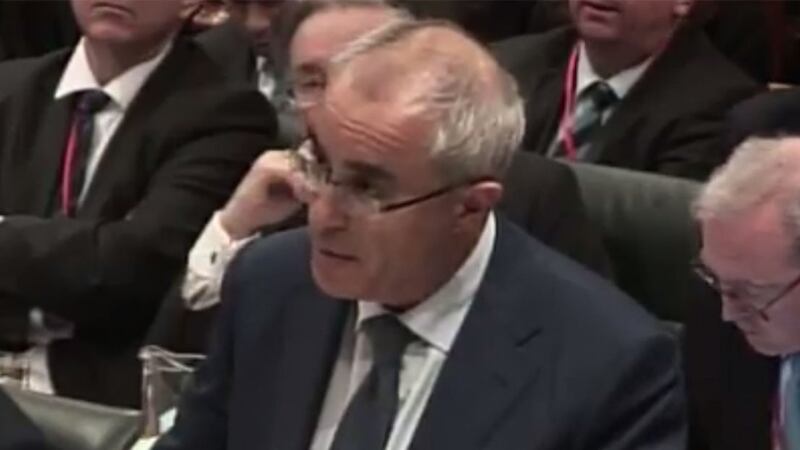Triggering Brexit will "frustrate or render insensible" a large number of British laws and is a reason why Parliament must be involved, a top lawyer has told the Supreme Court.
Lord Pannick QC is asking 11 justices in the highest court in the land to rule that British government ministers have no power to use the royal prerogative to trigger Article 50 of the Lisbon Treaty and start the two-year process of withdrawing from the EU without the prior authority of Parliament.
He is representing Gina Miller, the investment fund manager and philanthropist who won a historic High Court ruling on November 3 that British Prime Minister Theresa May lacked prerogative powers to notify Article 50 without consulting MPs.
Lord Pannick said the June referendum which resulted in a clear majority in favour of leaving the EU was "a very important matter" but had nothing to do with the legal issue before the court, which concerned "who has the power to notify?"
On the third day of a four-day hearing, he told the judges an important issue to consider was the impact of notification on UK statutes bound up with EU laws and directives.
Lord Pannick said it was in fact the view of Brexit Secretary David Davis, who is leading the Government's appeal against the High Court ruling, that some legislation "simply will not work" on exit from the EU.
"When the court is asking itself whether the Secretary of State has prerogative powers to notify, it is an important dimension of the argument that that which he seeks to do will frustrate and render insensible a large number of statutory provisions."
Lord Pannick submitted that the British government "must obtain parliamentary approval" in order to take steps which would have such an effect.
Members of the public queued early once again on Wednesday to gain a place in court to witness the landmark proceedings.
On Tuesday, James Eadie QC, for the government, insisted that it does have the legal power to use the prerogative to trigger Britain's exit from the European Union following the June 23 referendum which resulted in a leave vote.
Lord Pannick declared: "Parliament is sovereign. What Parliament created, only Parliament can take away."
Mr Eadie rejected the suggestion that the government's Brexit strategy was an "affront" to parliamentary sovereignty.
Mrs May has made it clear she still intends to give an Article 50 notification by the end of next March to start the leave negotiations with 27 other EU countries. The case is due to finish on Thursday with a ruling in the new year.
Lord Pannick told the justices that there had been debates in Parliament, and there would be "more such debates".
He agreed that it was for Parliament to decide the "nature and extent of its involvement", subject "to an important qualification".
The QC added: "Only an Act of Parliament could lawfully confer power on the appellant to notify.
"Why is that? Well, because notification will nullify statutory rights and nullify a statutory scheme.
"The law of the land is not altered by a motion in Parliament. This is a basic constitutional principle.
"As the court knows a motion may be approved in the House of Commons today.
"Our submission is that a motion in Parliament can't affect the legal issues in this case. A motion in Parliament simply cannot rectify what is otherwise a legal deficiency in the appellant's case."
On the first day of the hearing, Attorney General Jeremy Wright began the legal challenge on behalf of the government by saying that "Parliament can stand up for itself".
Lord Pannick countered on Wednesday: "With respect, that is a bad legal argument.
"I invite the court not to accept any suggestion that the legal limits on ministers' powers are to be left to, or influenced by, political control - or Parliamentary control - short of an Act of Parliament."
His argument was supported by Dominic Chambers QC, appearing for London hairdresser Deir Dos Santos, who is also at the centre of the battle to block the use of the royal prerogative in Brexit without primary legislation.
Mr Chambers said that, under the doctrine of parliamentary sovereignty, "Parliament is supreme" and no other person or body could nullify or set aside legislation Parliament enacted.
The doctrine, "forged on the battlefields of 17th century England in the clash between the Crown and Parliament", meant the Government appeal must be dismissed because it was attempting to use the royal prerogative to set aside EU law rights enshrined in domestic law by Parliament without primary legislation.
Mr Chambers added: "In the absence of such parliamentary authorisation, by triggering Article 50 the Government will be acting contrary to the doctrine of parliamentary sovereignty, and so the Government will be acting unlawfully.
"At the heart it really is as straightforward as that."








